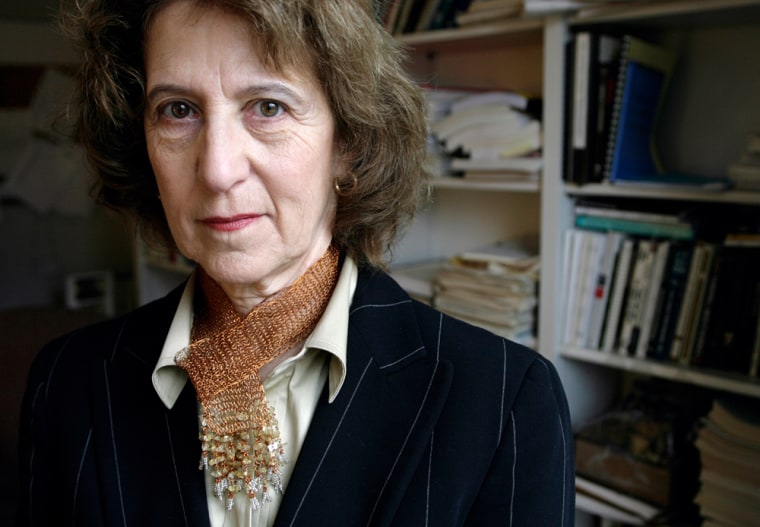Rhoda Flaxman had grown tired of beach vacations and became intrigued when she heard about a trip co-sponsored by her alma mater, Bryn Mawr College. It promised a thorough learning experience about the lives and experiences of women in Jordan, including meetings with a human rights attorney, a literature professor and Jordan’s first female ambassador to the United Nations.
Flaxman, an English professor at Brown University, isn’t normally one for group travel, but is reconsidering given the strong educational focus of her Jordan trip. “We felt as though we were really getting a very good view of the country,” she said.
Universities and museums have organized learning-oriented trips in the past, but the trend has been booming in recent years and is now becoming part of the mainstream business of the travel industry, experts say.
For universities, alumni travel programs offer another method of fundraising and a means of tightening bonds with their alumni and encouraging future donations. For travel companies, extra features like lectures from scholars help sign up customers for group travel, especially sophisticated baby boomers and people who have ever more options for booking discounted flights and hotels online.
Boutique tour operators have been rolling out more educational trips to exotic lands, and large well-heeled operators like Abercrombie & Kent say they have seen a surge in interest in that kind of travel.
Abercrombie & Kent runs educational tours for Harvard and other universities, but has also seen growth in non-university sponsored tours that it markets directly to the public. It recently announced a series of educational trips done in conjunction with The Nature Conservancy.
The trips aren’t necessarily for those on a budget: Abercrombie’s 13-day trip to Brazil with The Nature Conservancy costs $7,840, and an 11-day trip to Ecuador and the Galapagos costs $9,350.
Companies that traditionally operated basic package tours are also finding their way into offering more value-added services like educational trips, says David Cogswell, a senior editor at Travel Weekly, an industry publication.
First Choice, a large package holiday company based in Britain, found profits under pressure as more people book cheap flights and hotel rooms on their own. That led it to purchase more than 10 operators of more hands-on, “experiential” travel, Cogswell said.
Janet Moore, whose Long Beach, Calif.-based travel company Distant Horizons organized the Jordan trip and others to Iran and Afghanistan, says she’s seen enormous growth in interest in educational travel over the past five years.
Moore, who sits on an advisory committee for a national conference on educational travel, said the sheer growth in attendance speaks to the surging interest in the area.
When the Educational Travel Conference started 18 years ago, only 15 to 20 institutions came looking to arrange educational trips. Last year there were 140 and more than 200 are coming to this year’s meeting, which is being held Tuesday through Friday in Baltimore.
“This is a booming area,” Moore said. Many of her clients are 55-plus, right at the cusp of the baby boomer generation that is heading into retirement with more time and money to spend.
A survey of U.S. travelers taken last year by the Travel Industry Association found that 56 percent said they were interested in taking an educational trip and 22 percent said they were more interested now compared with five years ago.
Travel programs are still a growth area for universities. Karen Anthony, director of alumni travel at the University of Notre Dame for the past 23 years, said it’s only been in more recent years that schools use the trips to showcase the expertise of their faculty. Now, about half of the trips sponsored by Notre Dame have faculty who come along and give talks, she said.
AHI International Corp., which runs alumni travel programs for more than 200 schools, has seen increasing interest in more exotic locales, said Liz Harrison, spokeswoman for the Rosemont, Ill.-based company. AHI has added trips to Bhutan, Ukraine, South Africa and Chile, all in the past three years, she said.
Even among the most seasoned organizers of expedition travel, there are signs that travelers are becoming more sophisticated and curious about the destinations they go to.
Sven-Olof Lindblad, whose father Lars-Eric organized the first commercial tours to Antarctica, the Galapagos and Easter Island with a company he founded in 1958, Lindblad Travel, says the discussions on his tours have increasingly focused on environmental topics such as global warming.
So much so, in fact, that a new trip that his company Lindblad Expeditions is announcing this week will bring people to the Arctic with three of the top scientists studying climate change today. That 10-day trip will cost about $5,000.
“People are finding it more valuable to learn something while they travel and to have that experience when they come home,” Lindblad said.
Others come to educational travel for their kids. Or in the case of Barbara Collins, a retiree living in Leland, Mich., for her eight grandkids.
When each grandkid turns 13 he or she gets a letter promising a trip with the grandparents to any country in the world — “as long as it’s politically stable,” adds Collins — and so long as they find something to learn on the trip and write in a journal about what they learned there.
Their last trip, to the Galapagos islands, was “quite a mind-blowing experience,” Collins said. “We hope that this will encourage travel for the children and learning outside the classroom situation.”
